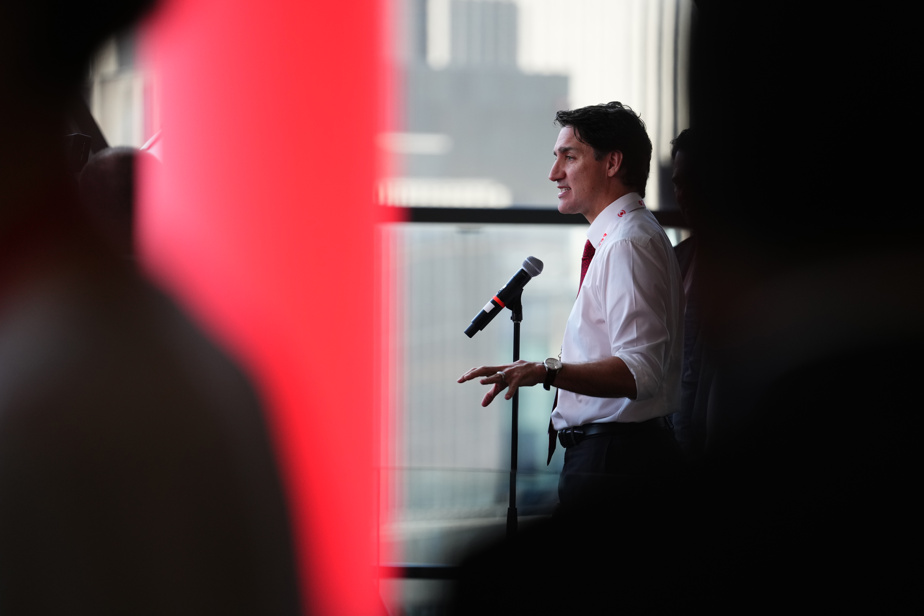(OTTAWA) Liberal Party of Canada activists have dismissed the idea of demanding that Justin Trudeau run in the next federal election with a costed program to return to balanced budgets.
The resolution sponsored by the Quebec branch of the Liberal Party of Canada (PLC) was defeated on Saturday by a vote of 97 against and 76 in favor. The vote took place without a single member present claiming a debate.
Simon Daigle, a member of the Liberal Association of Laurier-Sainte-Marie, presented the resolution by recalling that Canada had accumulated high expenses during the COVID-19 pandemic and that the debt had exploded in an extraordinary and unprecedented way. in times of peace.
The members therefore preferred to give free rein to their leader in the management of public finances.
Asked about this, the Minister of Innovation, Science and Industry, François-Philippe Champagne, said that the activists spoke
“The voice is with the members. But I think fiscal discipline is part of the Liberal Party’s DNA. At the same time, you have to give yourself a little flexibility. For example, we are emerging from the COVID-19 pandemic. When you govern, you can’t always anticipate everything that can happen,” said Minister Champagne.
He added that, in his view, it is important to make a distinction between “expenses” and “investments”.
“There are expenditure items that are investments,” he said, giving the example of investments in the manufacturing sector of batteries for electric vehicles or the production of vaccines.
“Quebec was able to enter the battery industry and the automotive industry. For me, it is investing in the future. I think we can make strategic choices, as we did recently, while being rigorous. Obviously, we will listen to what the members have to say. But governing is about making choices,” he argued.
He also said the $13 billion investment in Volkswagen’s St. Thomas battery mega-factory “will pay dividends for generations.”
His cabinet colleague, Health Minister Jean-Yves Duclos, offered a similar analysis. He recalled that the federal government had no choice but to support families, workers and businesses during the pandemic in order to avoid a deep recession or even a depression.
“We still have fiscal terms that are still among the best in the G7 and G20. The investments we make contribute to economic growth. It is not a surprise or a coincidence that Canada finds itself in stronger economic growth than all the G7 countries and that it has such a low unemployment rate,” said Mr. Duclos, who was an economist before make the jump to federal politics in 2015.
Before leaving the congress on Friday to travel to London to attend the coronation of King Charles III, Justin Trudeau had thrown cold water on the correctness of passing such a resolution.
“The most important thing for me is to create a strong and resilient economy in which we can continue to invest and create good jobs. We know that it is essential to demonstrate fiscal responsibility, which we are still doing, ”said Mr. Trudeau in a press scrum.
While delegates rejected the balanced budget resolution, they passed the one advocating an end to fossil fuel subsidies by 2025 and came out in favor of the right to four weeks of vacation, the holding of a citizens’ assembly on electoral reform, the creation of a zone of circulation between Canada, Australia, New Zealand and the United Kingdom. They also voted in favor of establishing a guaranteed basic income and an electric high-speed train in the Quebec City-Windsor corridor.
The National Convention of the Liberal Party of Canada ends Saturday afternoon.

